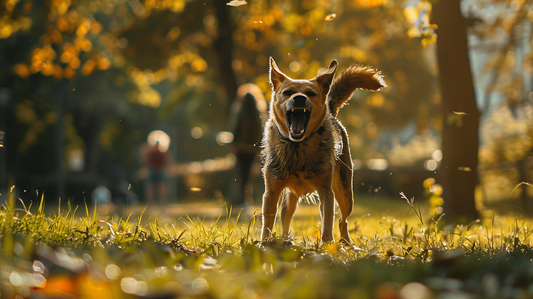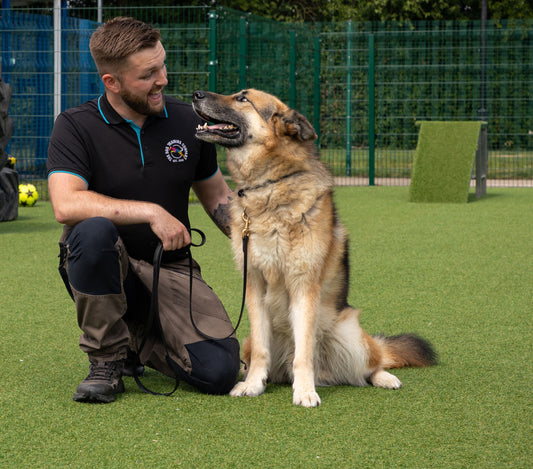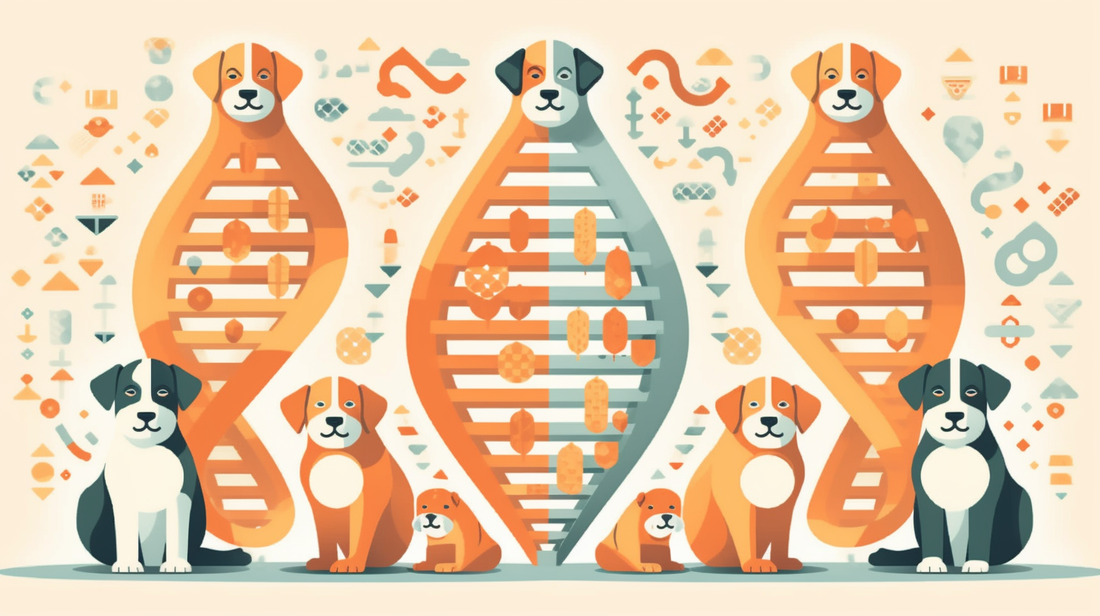
Do Genetics Influence a Dog's Behaviour?
The Role of Genetics in Canine Behaviour
The genetics of a dog play a significant role in shaping its behaviour, but it's essential to remember that environmental factors, such as socialisation and training, also contribute to a dog's overall disposition. This article delves into the various ways genetics can influence a dog's behaviour, including breed characteristics, temperament, aggression, fearfulness, and intelligence. By understanding the role of genetics, dog owners can better comprehend their pets and take the necessary steps to ensure their happiness and well-being.
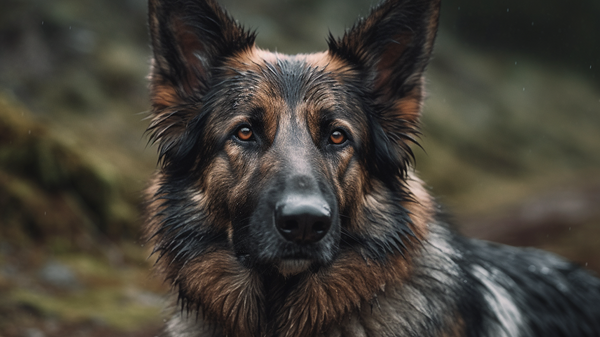
Breed Characteristics: A Historical and Behavioural Perspective
Over time, different dog breeds have been selectively bred for specific traits and abilities, such as herding, hunting, and guarding. These traits are often associated with particular behaviours that are characteristic of that breed. For example, herding breeds like Border Collies and Australian Shepherds may be more likely to exhibit heel-nipping tendencies, as this behaviour has been ingrained in them through generations of working with livestock. Similarly, hunting breeds like Beagles and Labrador Retrievers may be more prone to chasing small animals, as their ancestors were bred to track and retrieve game.
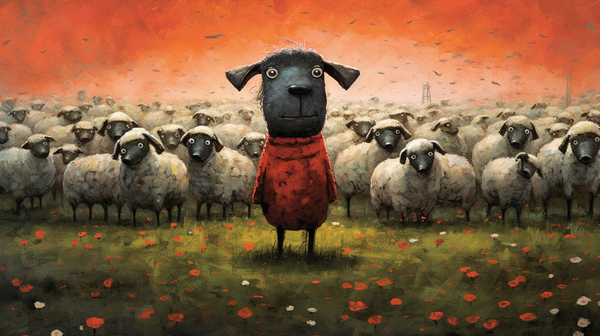
These breed-specific characteristics can have both positive and negative implications. On one hand, they make certain breeds uniquely suited for specific tasks or activities, such as service, therapy, or search and rescue work. On the other hand, certain behaviours may be considered undesirable or problematic, especially when not properly managed through training and environmental enrichment.
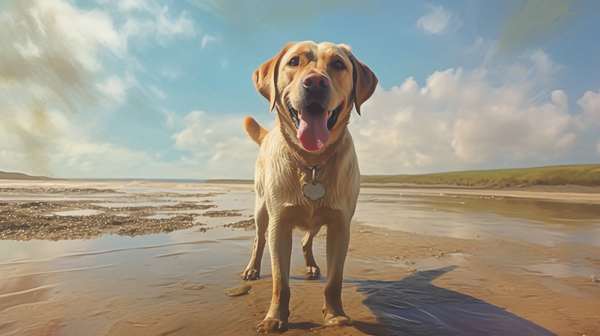
Temperament: The Genetic Foundation of a Dog's Personality
A dog's temperament, which refers to its general disposition and behaviour patterns, is largely determined by genetics. Some dogs are naturally more outgoing and friendly, while others are more reserved or timid. This temperament can greatly impact how a dog interacts with other animals, people, and its environment.
For instance, a dog with a naturally confident temperament might be more adaptable to new situations, making it an ideal candidate for activities that involve meeting new people or animals, like therapy work or dog shows. In contrast, a dog with a more introverted temperament might require additional socialisation and patience to help it feel comfortable in new situations.
Aggression: A Complex Behaviour with Multiple Influences
Aggression is a complex behaviour that can have multiple causes, including genetics. Some breeds, such as pit bulls, Rottweilers, and German Shepherds, have a higher likelihood of displaying aggressive behaviour. However, it's crucial to note that genetics are just one of many factors that can contribute to aggression. Environmental influences, including an individual dog's upbringing, socialisation, and training, can also play a significant role in shaping a dog's aggressive tendencies.
Furthermore, breed alone should not be used as a sole predictor of aggression. Each dog is an individual, and there are countless examples of friendly and well-behaved dogs within breeds that are often stereotyped as aggressive.
Fearfulness: The Genetic Component of Anxiety and Timidity
Fearfulness is another behaviour that can be influenced by genetics. Dogs that are naturally timid or anxious may be more prone to fearful behaviours, which can impact how they interact with their environment and the people and animals within it. For example, a fearful dog might be more likely to exhibit fear-based aggression or avoid new situations, making it challenging to introduce the dog to new experiences, people, or animals.
It's essential to recognise a dog's fearfulness and work with a professional trainer or behaviourist to develop strategies to help the dog cope with its anxiety. This may involve desensitisation, counter-conditioning, and other techniques that can help the dog gradually build confidence and feel more secure in its environment.
Intelligence: The Role of Genetics in Canine Cognitive Abilities
Intelligence can also be influenced by genetics. Some breeds are known for their high level of intelligence, while others are considered less intelligent. Examples of highly intelligent breeds include Border Collies, Poodles, and German Shepherds. These breeds often excel in activities such as obedience, agility, and scent work due to their ability to learn and problem-solve quickly.
In contrast, some breeds may take longer to learn commands or may be less motivated to perform tasks. It's important to remember that intelligence should not be the sole determinant of a dog's worth or its potential to be a loving and devoted companion. Each dog has unique strengths and qualities that make it special, regardless of its intellectual capacity.

The impact of intelligence on a dog's behaviour can manifest in various ways. More intelligent dogs may require additional mental stimulation and enrichment to prevent boredom, which can lead to destructive or problematic behaviours. Providing puzzle toys, engaging in training activities, and offering opportunities for exploration can help keep intelligent dogs mentally stimulated and satisfied.
The Bigger Picture: Understanding the Interplay of Genetics and Environment
While genetics play a significant role in a dog's behaviour, it's crucial to acknowledge that environmental factors, such as socialisation, training, and life experiences, can also have a substantial impact. A dog's behaviour is a result of the interplay between its genetic makeup and its environment.
For example, a dog that is genetically predisposed to be confident and friendly may become fearful and aggressive if it is not properly socialised or if it experiences a traumatic event. Similarly, a dog that is genetically predisposed to be timid may become more confident and outgoing with the right socialisation and training.
As a dog owner, understanding the role of genetics in your dog's behaviour can help you tailor your training and management strategies to suit your pet's individual needs. By working with your dog's natural inclinations and providing a supportive and enriching environment, you can help your canine companion lead a happy, healthy, and well-adjusted life.
In conclusion, the genetics of a dog can have a significant impact on its behaviour, influencing breed characteristics, temperament, aggression, fearfulness, and intelligence. By recognising the role that genetics play in a dog's behaviour, owners can better understand their pets and take steps to help them lead happy, healthy lives. However, it's essential to remember that a dog's behaviour is also shaped by environmental factors, such as socialisation and training. By considering both genetic and environmental influences, owners can help their dogs reach their full potential as loving and well-behaved companions.
Above all, ensuring your dog is well-trained is the key to a heathy relationship and long happy life together. We've worked with over 5000 dogs with training needs ranging from basic obedience, to complex behavioural needs such as dog and human aggression. We offer a variety of packages to suit all training requirements and budgets, from cost effective programs to more comprehensive plans with long term residential training. All our programs begin with a 1-hour assessment with one of our trainers. This allows us to fully understand your dog, their history, the relationship you have with them, their current level of training and any behaviours you'd like to address. Book now and take the first step towards the dog you always dreamed of.

